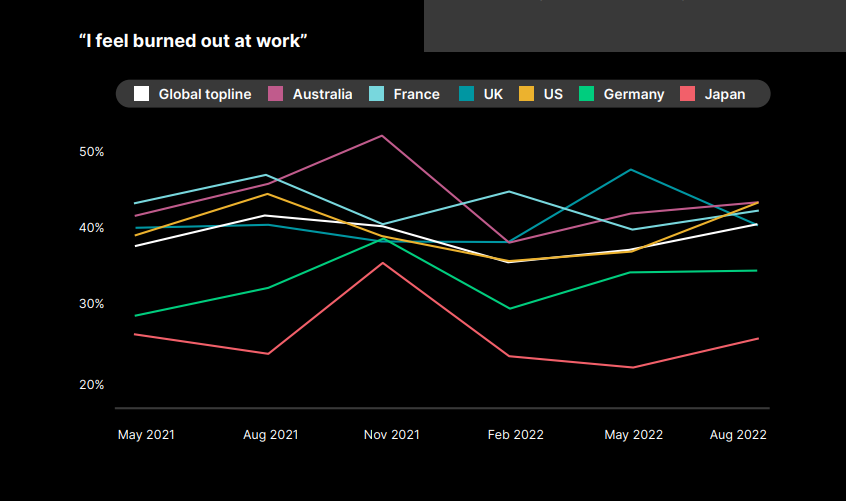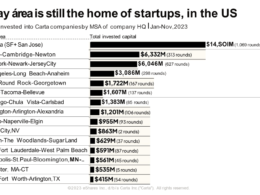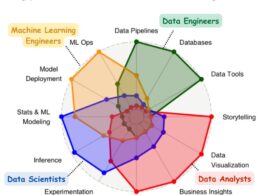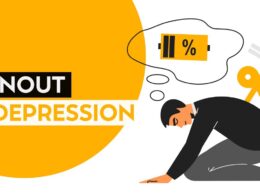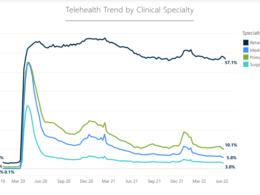health transformation institute (HTI)
Joaquim Cardoso MSc.*
Chief Researcher and Editor
November 5, 2022
(*MSc from London Business School — MIT Sloan Programme)
Future Forum Report
October 2022
The percentage of employees who say they are burned out rose 8% among the global workforce (from 37% to 40%) between May and August.
- The rise was even more pronounced among U.S. workers, rising 16% between May and August from 37% to 43%.
- U.S. workers now show the highest incidence of burnout globally with more than two out of every five U.S. workers saying they are burned out.
There’s a sizable (and growing) gender gap between women and men on the issue of burnout, with women 32% more likely to experience burnout compared with men.
And the younger the worker, the higher the burnout risk,
- with 49% of 18-to-29- year-olds saying they feel burned out (compared with 38% of all workers over the age of 30).
- In fact, workers under age 30 are 29% more likely to experience burnout than workers over age 30.
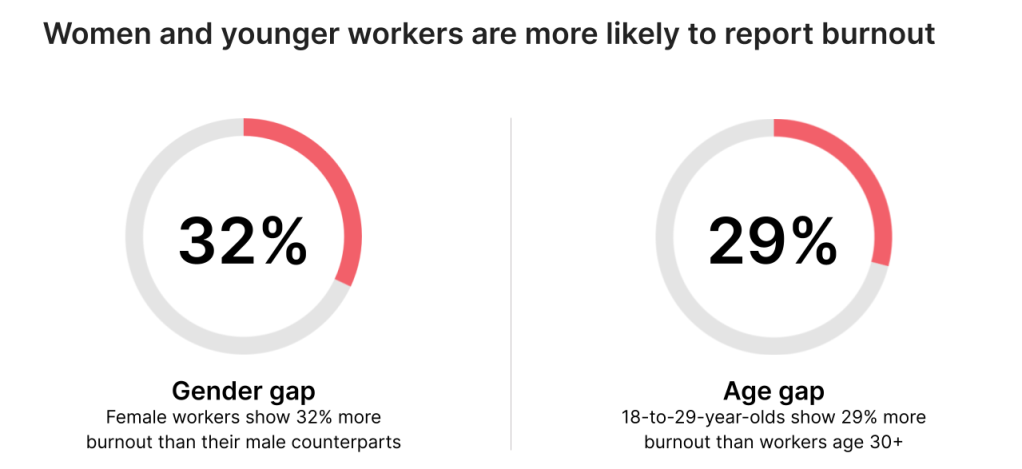
Middle managers are also at high risk for burnout, at 43%,
- followed by individual contributors at 40%,
- senior management at 37%, and
- executives at 32%.
Executives should take note of these findings since burnout is closely associated with degraded employee experience, lack of connection, and increased attrition:
- Employees who are burned out report 22x worse stress and anxiety at work compared with employees who are not.
- Burnout is closely associated with degraded employee performance, including 32% worse productivity and 60% worse ability to focus.
- People who are burned feel far less connected. They are 2x more likely to feel disconnected from company values, direct managers, immediate team, and executive leadership.
- Burnout is a major driver of attrition. People who are burned out report being 3x more “likely” or “very likely” to look for a new job in the coming year.
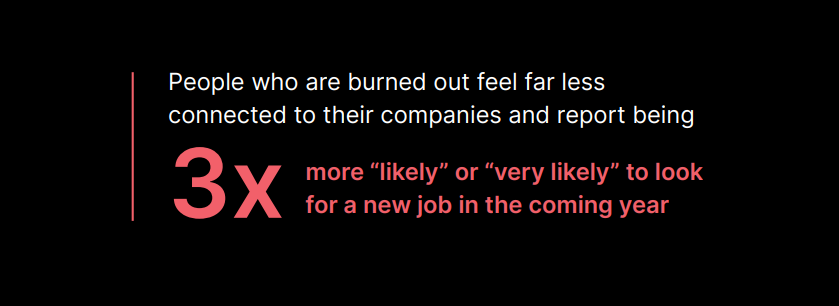
BOX: Burnout, defined
According to the World Health Organization, burnout is a syndrome resulting from chronic workplace stress. It is characterized by three dimensions:
- feelings of energy depletion or exhaustion
- increased mental distance from one’s job, or feelings of negativism or cynicism related to one’s job
- reduced professional efficacy
Originally published at: https://futureforum.com
How to cite this report
Fall 2022 Future Forum Pulse,
https://futureforum.com/research/pulse
-report-fall-2022-executives-feel-strain
-leading-in-new-normal/
